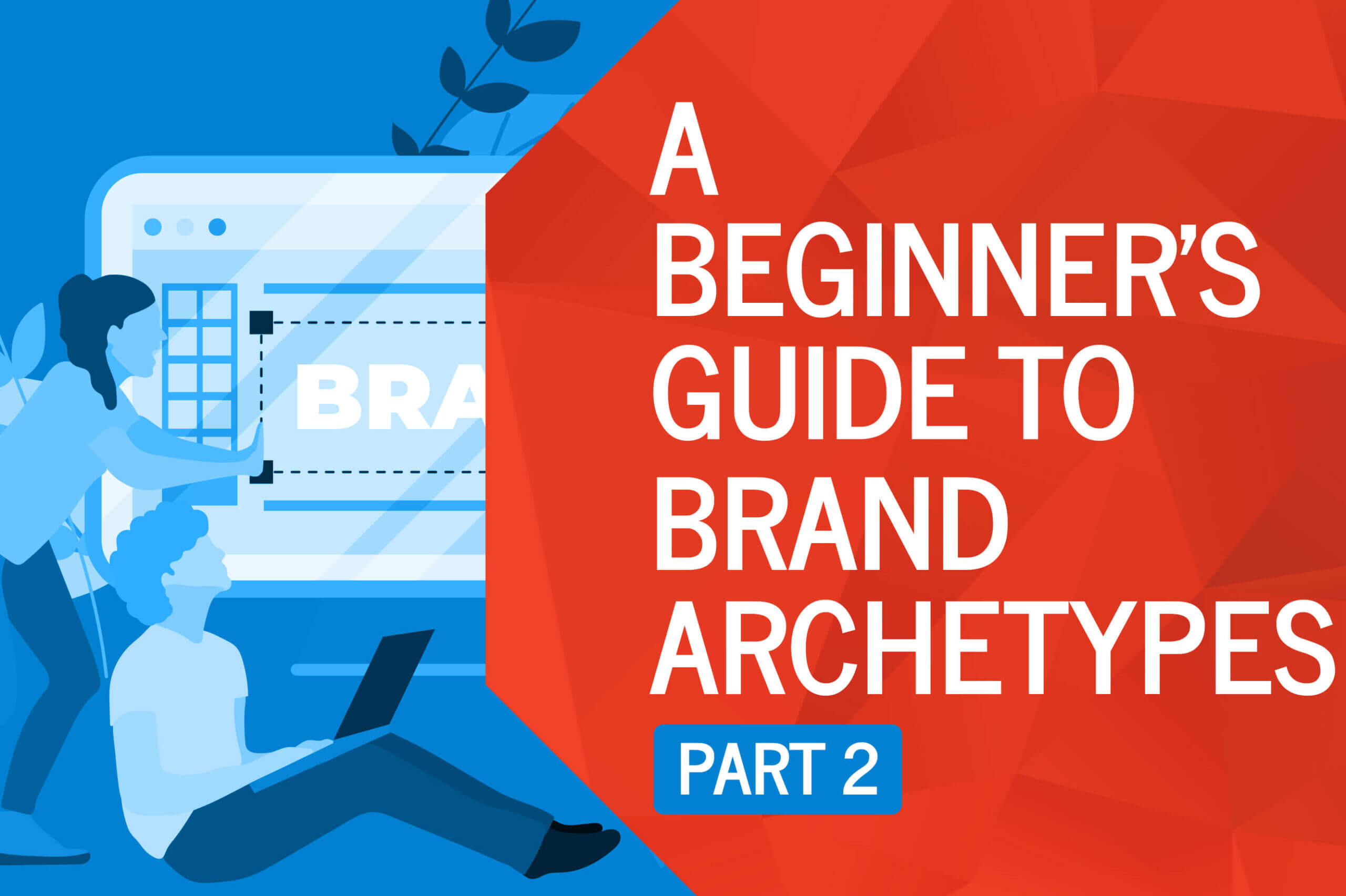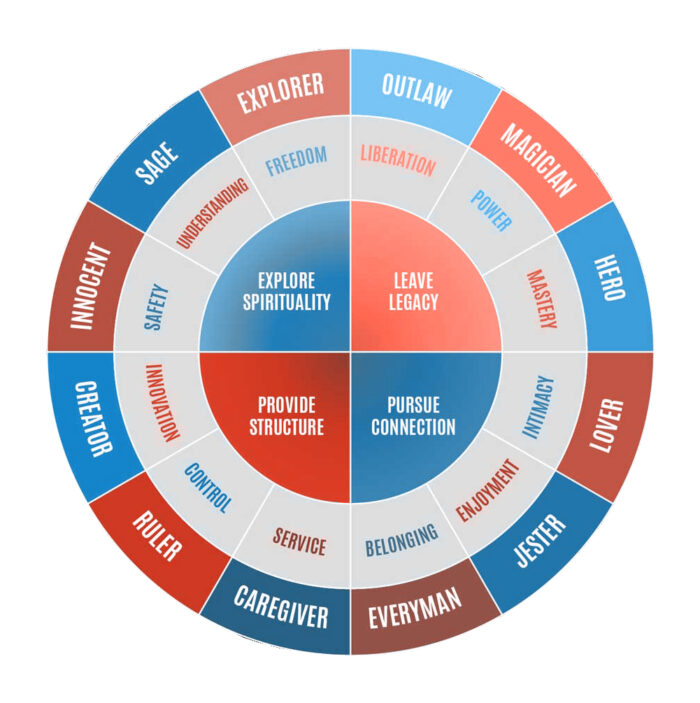A Beginner’s Guide to Brand Archetypes (Part 2)
 February 1, 2022 | By Ilfusion Team
February 1, 2022 | By Ilfusion Team
In Part 1 of this series, we discussed what brand archetypes are and how they are valuable in establishing your brand strategy.
To review, archetypes in general are symbols and universal patterns of behavior that are stored in the subconscious of every human being and are therefore easily understood.
The 12 archetypes are identified and studied by psychiatrist Carl Jung, and each of these archetypes appeal to a certain basic human desire. When your company’s branding aligns with an archetype that also aligns well with your target audience, it cultivates a stronger emotional connection.

What Are the 12 Brand Archetypes?
1. The Innocent
Sometimes called The Idealist, The Innocent is naturally optimistic and deeply holds on to their values and beliefs that things always turn out well in the end. They exude honesty and purity and have a general aura of wholesomeness.
Basic human desire: Safety
Related emotions/desires: Happiness, simplicity, positivity
Marketing niche: Food, beauty and skincare, organic, or cleaning products
Sample brands: Dove, Coca-Cola, McDonald’s
2. The Everyman
Otherwise called The Realist or The Regular Guy/Gal, The Everyman is competent, realistic, and can anticipate problems and efficiently handle them. They are also highly empathetic, especially those who are in need, and they highly value inclusivity and fellowship.
Basic human desire: Belonging
Related emotions/desires: Camaraderie, humility, authenticity, equality
Marketing niche: Home, family life, everyday apparel, comfort food
Sample brands: IKEA, Home Depot, Target
3. The Hero
Sometimes referred to as The Warrior, The Hero is achievement-oriented and naturally determined. They work hard and meet challenges head-on and are highly motivated to prove their worth through mastery and courage.
Basic human desire: Mastery
Related emotions/desires: Bravery, determination, growth, strength
Marketing niche: Sportswear and sports equipment, emergency trade services
Sample brands: Nike, FedEx, Duracell
4. The Caregiver
The Caregiver is naturally compassionate, altruistic, and nurturing. They radiate maternal love and warmth, and they often advocate for vulnerable groups and those in need.
Basic human desire: Service
Related emotions/desires: Care, reassurance, support, gratitude
Marketing niche: Healthcare, non-profit, education
Sample brands: Unicef, Johnson & Johnson, Heinz
5. The Explorer
Otherwise called The Seeker or The Adventurer, The Explorer is an independent heart who is curious, daring, and adventurous. They are quite keen on taking on challenges, and they gain excitement when presented with opportunities to try out new approaches and perspectives.
Basic human desire: Freedom
Related emotions/desires: Fearlessness, self-discovery, exploration
Marketing niche: Outdoor equipment, automotive (SUVs), extreme sports, travel
Sample brands: The North Face, Starbucks, Jeep, NASA
6. The Lover
The Lover is characterized by passion, beauty, and pleasure. They value cultivating harmonious relationships and aim to be both physically and emotionally appealing to their target audience. As such, they can be quite charming and are naturally empathetic.
Basic human desire: Intimacy
Related emotions/desires: Love, affection, indulgence, sensuality
Marketing niche: Cosmetics, fragrance, wine, intimate wear, luxury items
Sample brands: Victoria’s Secret, Chanel, Calvin Klein
7. The Outlaw
The Revolutionary, sometimes referred to as The Revolutionary or The Outlaw, is the unconventional thinker who disrupts the norms and is not afraid to develop cutting-edge approaches. They’re often seen as radicals and game-changers who desire freedom and non-conformity.
Basic human desire: Liberation
Related emotions/desires: Change, independence, iconoclasm
Marketing niche: Construction tools, automotive (motorcycles), technology
Sample brands: Apple, Harley-Davidson, Virgin (Richard Branson)
8. The Creator
Sometimes called The Dreamer, Creator archetypes are expressive, imaginative, and are natural innovators. They value self-expression and freedom of choices and are driven by the pursuit of originality.
Basic human desire: Innovation
Related emotions/desires: Vision, individuality, creative freedom
Marketing niche: Art and design, marketing, literature, technology
Sample brands: Lego, Adobe, Tesla, Crayola
9. The Sage
The Sage seeks knowledge and wisdom. They are naturally intelligent, reflective, and analytical. They are life-long learners, and their drive comes from not only understanding the world but also sharing their wisdom with others.
Basic human desire: Understanding
Related emotion/desires: Intelligence, wisdom, information
Marketing niche: Education, consultancies, media and news, search engines
Sample brands: Google, BBC, Discovery Channel
10. The Jester
The Jester values wit, humor, and ingenuity. Spontaneity comes easy to them, and they are naturally playful, fun-loving, and optimistic. Despite their child-like nature, they can also be jovial truth-tellers and are efficient brainstormers who think outside of the box.
Basic human desire: Enjoyment
Related emotions/desires: Happiness, fun, positivity, pleasure
Marketing niche: Confectionary, liquor, entertainment, grooming
Sample brands: M&M’s, Ben and Jerry’s Dollar Shave Club, Old Spice
11. The Magician
The Magician is a catalyst for change and is quite adept in reframing challenges and empowering people. They are inspirational and charismatic in that they have the ability to take people on a transformational journey.
Basic human desire: Power
Related emotions/desires: Vision, transformation, healing, discovery
Marketing niche: Entertainment, beauty and health, technology
Sample brands: Disney, Dyson, MAC Cosmetics, TEDx
12. The Ruler
The Ruler desires leadership and control. They are authoritative, competent, influential, and confident. They aim for superiority and set the standard for others to follow. Rulers are defined by their need for order and stability.
Basic human desire: Control
Related emotions/desires: Power, status, wealth, success, refinement, sophistication
Marketing niche: Luxury brands, travel and hospitality (5-star), security, government, finance
Sample brands: Mercedes-Benz, American Express, Microsoft
Choosing the Right Brand Archetype
It’s important to know that you shouldn’t pick your brand archetype, it picks you. From there, you can build your message in a way to appeal to your target audience on top of that foundation.
A thorough understanding of what makes your company tick and what’s important to your target audience is critical in discovering the right archetype for your brand. Knowing what industry your brand belongs to is also a good starting point.
Conduct audience research and create buyer personas to get to know your audience even better.
Remember that the brand archetype you select must make sense not only psychologically but also strategically. Identifying your marketing and overall business goals also helps in discovering the best archetype for your brand.
Need Guidance on Your Branding Strategy and Discovering Your Brand Archetype?
Ilfusion is here to help you! We have a proven and tested Brand Architecture analysis to help craft a branding and marketing strategy that reaps results.
Care to guess the Ilfusion brand archetype? Give us a call, and we’ll let you know that, and how else we can make magic happen for your marketing efforts.
Get in touch with us by dropping us an email at cr******@******on.com or calling us at 888-420-5115.

